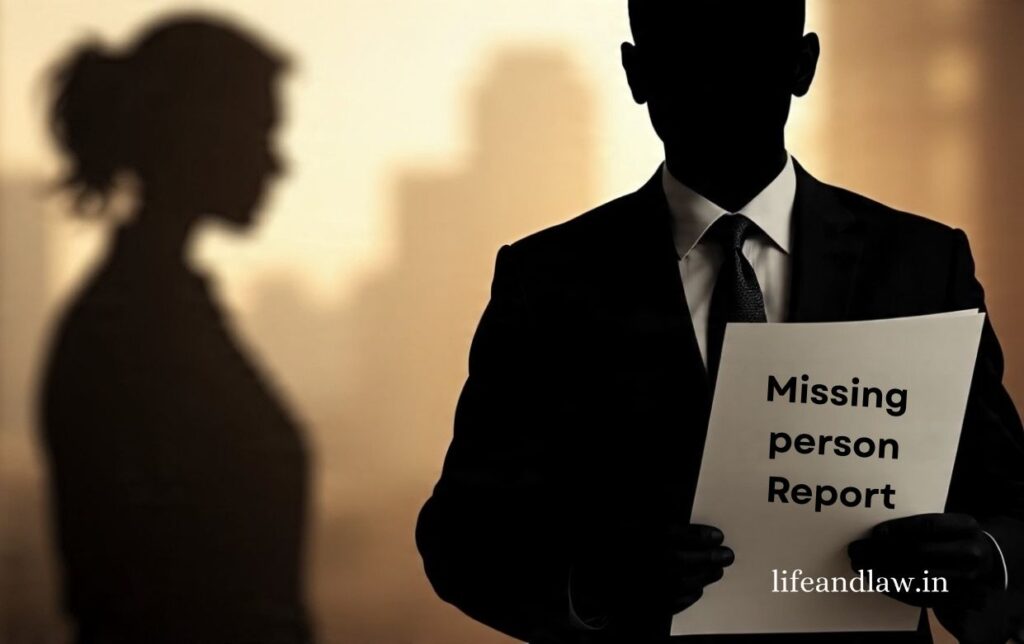Trending

Every year on 30th August, the world commemorates the International Day of the Disappeared, a solemn reminder of the many people who have gone missing without a trace. The pain of a loved one’s absence, whether caused by armed war, political repression, migration, trafficking, or natural calamities, cannot be healed by time alone. Every missing person has a narrative, and behind each tale is a family waiting, searching, and hoping for justice.
This article investigates the critical role of legal action in addressing the situation of the missing. While remembrance keeps them alive in our hearts, the law must keep them present in our judicial systems.
The term “missing persons” refers to a wide range of facts. Some people disappear during armed conflict or under oppressive regimes because of their views or identities. Others disappear during migration journeys, become victims of human trafficking, or are lost as a result of natural disasters or social breakdown.
The missing include activists, journalists, children, refugees, and the forcefully disappeared, who are seized by state or non-state forces without recognition or legal process. These disappearances are frequently accompanied by denial and silence, placing families in legal and emotional uncertainty.
According to the International Committee of the Red Cross (ICRC), approximately tens of thousands of individuals go missing each year, many in areas with weak legal systems or continuous violence.
The loss of a person causes more than just an emotional gap; it also initiates a series of legal and procedural challenges. Families are unable to claim inheritance, get insurance, or even declare a loved one deceased. Even more troubling, in cases of forced disappearance, there is frequently no official acknowledgement, which prevents any form of justice or responsibility.
Without a legal framework, disappearances are individual tragedies rather than public injustices. Legal action helps to reframe the narrative, recognising the vanished as victims of a systemic failure or crime rather than isolated events.
1. International Legal Mechanisms
The most important international instrument is the International Convention for the Protection of All Persons from Enforced Disappearance (ICPPED). This treaty, endorsed by the UN, defines enforced disappearance as a crime and a human rights violation, requiring nations to investigate, prohibit, and prosecute such actions.
The International Committee of the Red Cross (ICRC) and the UN Working Group on Enforced or Involuntary Disappearances (WGEID) also play important roles in monitoring instances, aiding families, and putting pressure on governments to take action.
Furthermore, under the Rome Statute of the International Criminal Court, enforced disappearance is considered a crime against humanity, making it one of the most serious international crimes.
2. National Laws and Policies
Countries have adopted several approaches:
Argentina and Chile, scarred by past dictatorships, have built strong legal systems for investigating disappearances.
In India, the judiciary has intervened in some high-profile missing person instances, but comprehensive national law is still lacking.
Some nations have rules that allow for the “presumption of death” after a specific number of years missing, but this frequently falls short in circumstances of suspected enforced disappearances.
The difficulty remains: many countries have yet to ratify or effectively execute the ICPPED’s requirements.
Legal structures are not sufficient. Implementation is riddled with challenges, especially in nations with poor government or ongoing conflict.
Impunity frequently protects perpetrators, particularly when governmental actors are involved.
Poor record-keeping, a lack of forensic capability, and the absence of centralized databases all impede investigations.
Cross-border cooperation is limited, leaving families of migrants and refugees with few options.
Victims from marginalised communities (ethnic minorities, indigenous peoples, and the poor) may confront additional impediments to justice.
In many cases, families serve as the primary advocates for the missing. They organise protests, petitions, DNA databases, and grassroots initiatives to demand answers.
Non-governmental organisations and human rights groups play an important role in:
Documenting cases and applying legal pressure,
Providing legal aid and counselling to families,
Implementing awareness campaigns and symbolic gestures of memory, such as empty chair displays or memorial walks.
Their efforts ensure that the disappeared are not forgotten, even when governments remain mute.
To really honour the missing, the world must move beyond memory and into action. This includes:
Encourage all states to ratify and implement the ICPPED.
Creating independent commissions and missing person registries.
Providing legal aid and therapeutic help to afflicted families.
Investing in forensic infrastructure and inter-agency collaboration.
Holding abusers legally accountable, regardless of rank or status.
Justice delayed is not merely denied; it is also erased.
The missing are not ghosts of the past; they are people whose lives have been disrupted, their families have been devastated, and justice has yet to be served. Every disappearance has a tale that requires attention, and legal systems must respond to the challenge of accountability and healing.
As a legal practitioner, Adv. Abdul Mulla continues to raise awareness and provide support on such human rights problems through his platforms www.asmlegalservices and www.lifeandlaw.in. On this International Day of the Disappeared, he encourages us all to not just remember, but also take action for justice.
Adv. Abdul Mulla (Mob. No. 937 007 2022) is a seasoned legal professional with over 18 years of experience in advocacy, specializing in diverse areas of law, including Real Estate and Property Law, Matrimonial and Divorce Matters, Litigation and Dispute Resolution, and Will and Succession Planning. read more….
Copyright BlazeThemes. 2025